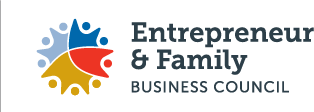How did you learn about Working Genius?
Patrick Lencioni, the founder of Working Genius, was a speaker at a conference I attended earlier this year. He talked about the concept of Working Genius, and it piqued my interest. The conference also gave out a code for a complimentary assessment which I took. That led to me listening to the Working Genius podcast which in turn led to me enrolling in their certification course that provided me with materials and access to videos to help me implement the assessment at Bisco.
Can you describe Working Genius?
Working Genius is a model to help people discover what they are naturally good at to help them thrive in the workplace and in their life in general.
The model involves six stages of work: Wonder, Invention, Discernment, Galvanizing, Enablement, and Tenacity (W.I.D.G.E.T.). The premise of Working Genius is that two of the stages bring you energy and joy (referred to as Working Genius), two drain you of energy and joy (referred to as Working Frustration) and the other two you are good at but they don’t energize you (referred to as Working Competency).
Working Genius is different from other tools as it is more about productivity than personality.
How did you implement Working Genius with your team?
I first rolled it out to our leadership team. They took the assessment individually, and we reviewed the results at an offsite leadership meeting and discussed what we did and didn’t agree with the assessments.
A team map was generated as part of the assessment to illustrate everyone’s Genius and Frustrations. That allowed us to look as a team to see if there was a stage we were lacking or if we were skewed in any specific areas. On a well-rounded team, each of the stages should be represented as a Working Genius. After a good response from the leadership team, we rolled it out to the mangers and then our marketing and sales staff.
Has knowing the Working Geniuses of your team changed how you approach work at BISCO?
We develop new products, and a lot of our activity is focused around product development and project teams. The assessments lend themselves well to determining project teams and understanding where individuals’ tendencies lie. Depending on the stage of work we are at, knowing the team’s Geniuses helps us better understand and evaluate each other’s responses and actions as well as our own. I now also use Working Genius to pull different people into certain types of meetings to get a more balanced group.
Is taking the assessment a long process?
It’s less cumbersome than some of the other assessment tools, like DISC. It only takes about 10 minutes to complete.
What was the most beneficial aspect of conducting the Working Genius assessment with your team?
It was hugely beneficial to understand our leadership team and where our pitfalls and tendencies might be. And knowing that from time to time we might need to “borrow” people to supplement a particular Genius. For overall career development of our BISCO employees, it provides an opportunity to look at their results and see how it aligns with the work they are doing.
Working Genius can also apply outside of work. It can apply to home life, volunteering, etc. and has actually helped some members of the team understand some family dynamics.
What are your Working Geniuses?
I am Discernment (The natural gift of intuitively and instinctively evaluating ideas and situations) and Enablement (The natural gift of providing encouragement and assistance for an idea or project).
In keeping with her Enablement Genius, Julie would be happy to answer any additional questions you have about her experience with Working Genius. Email Liz at liz@myefbc.com to get in touch with Julie.


